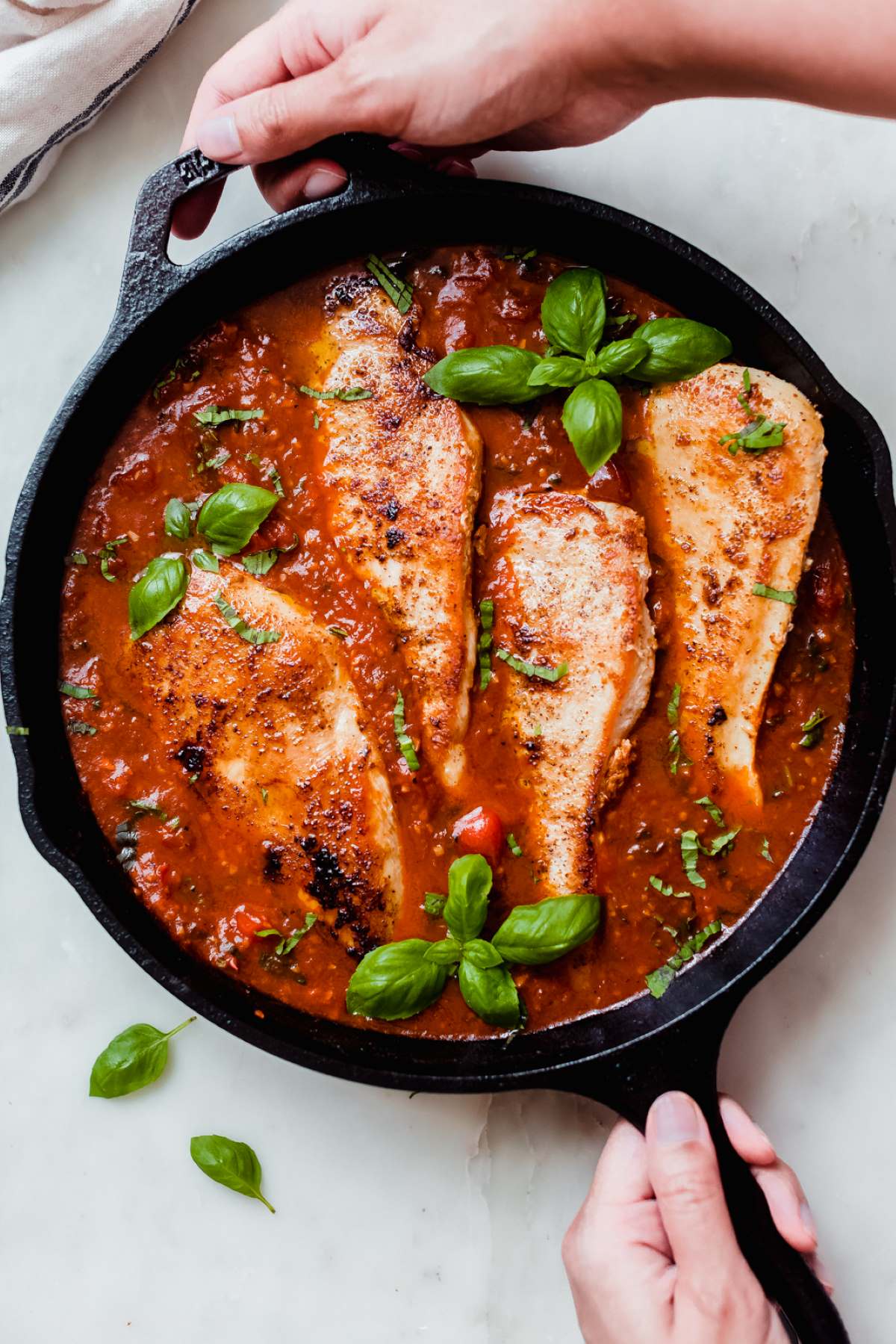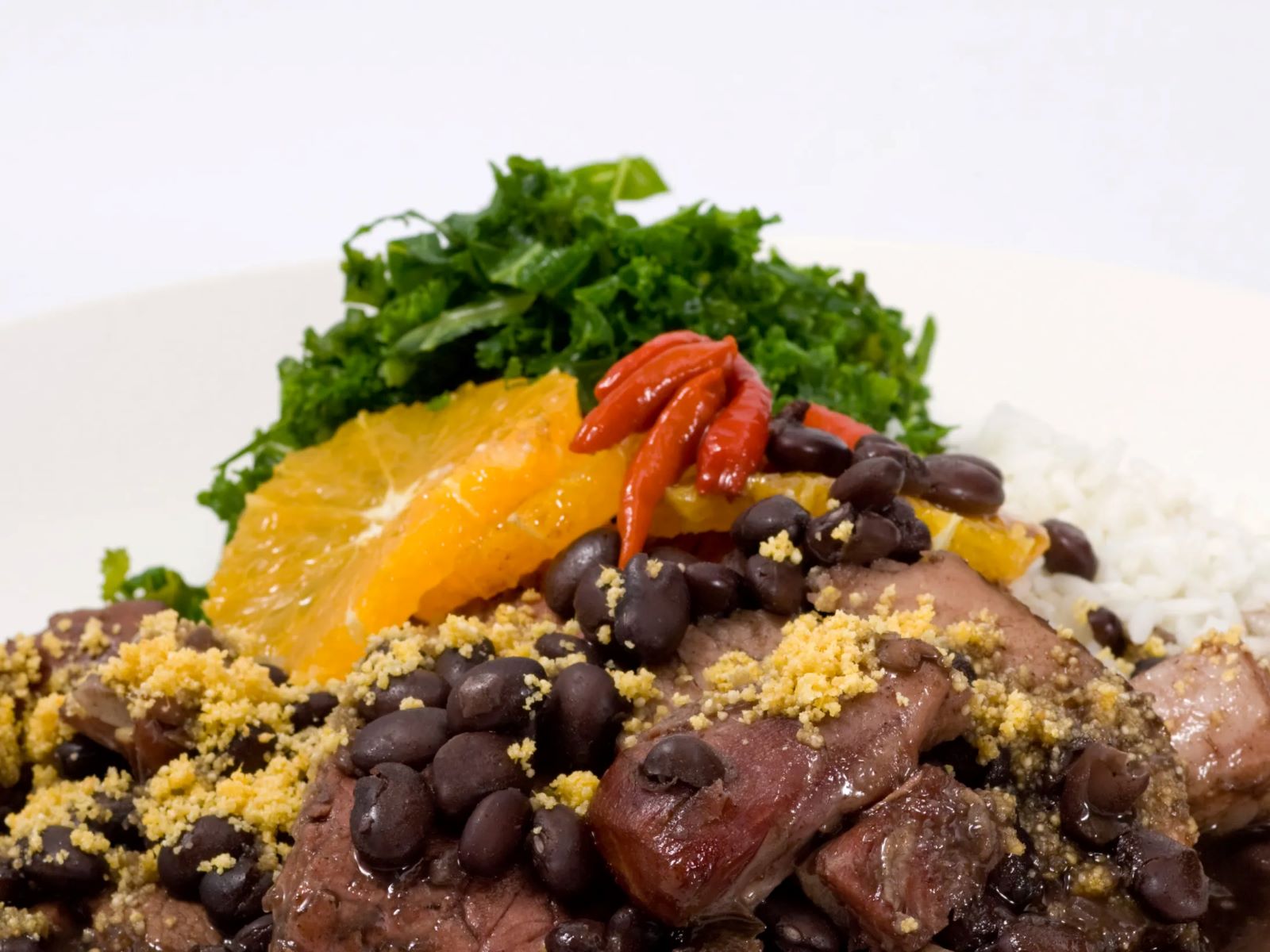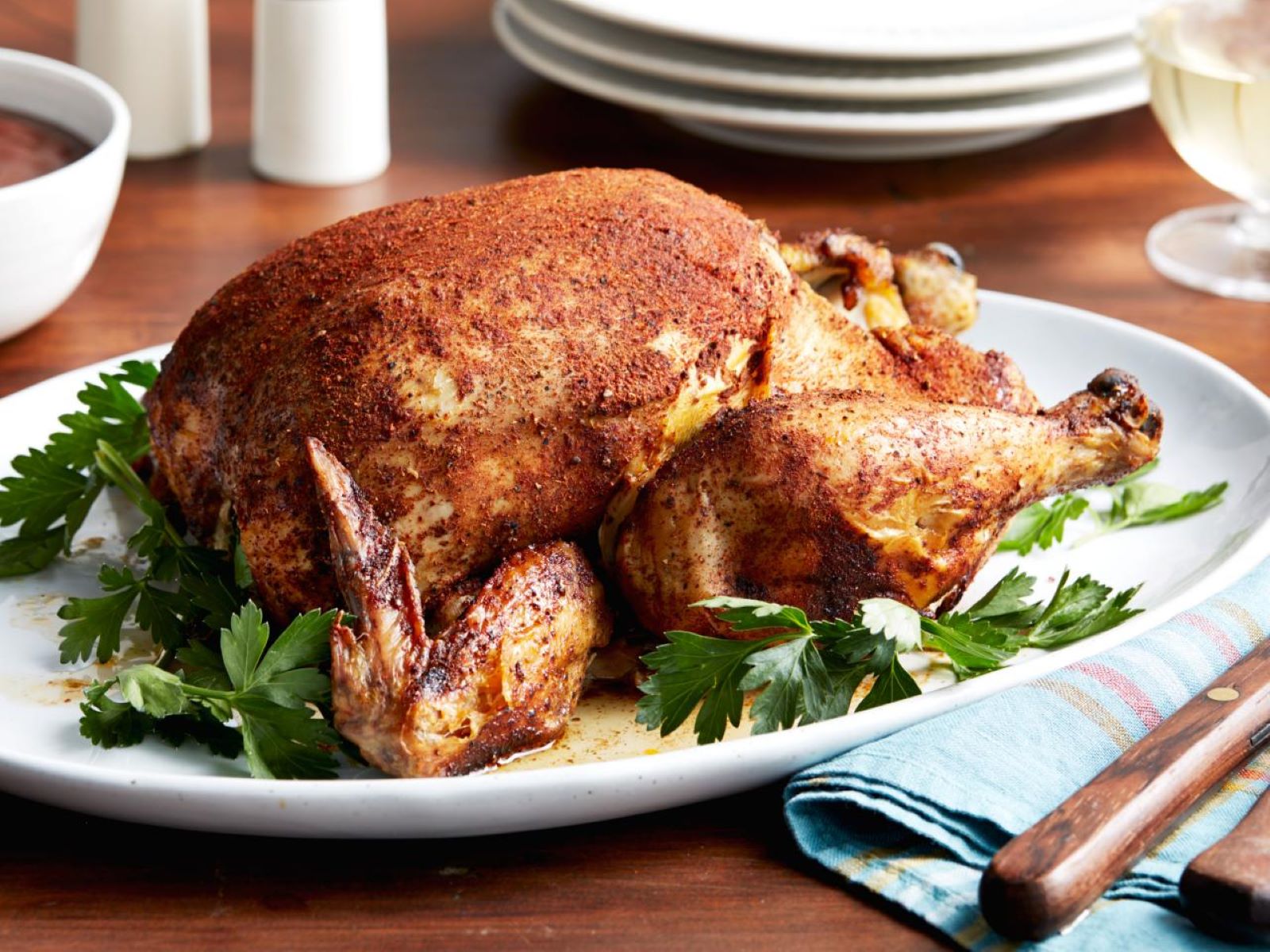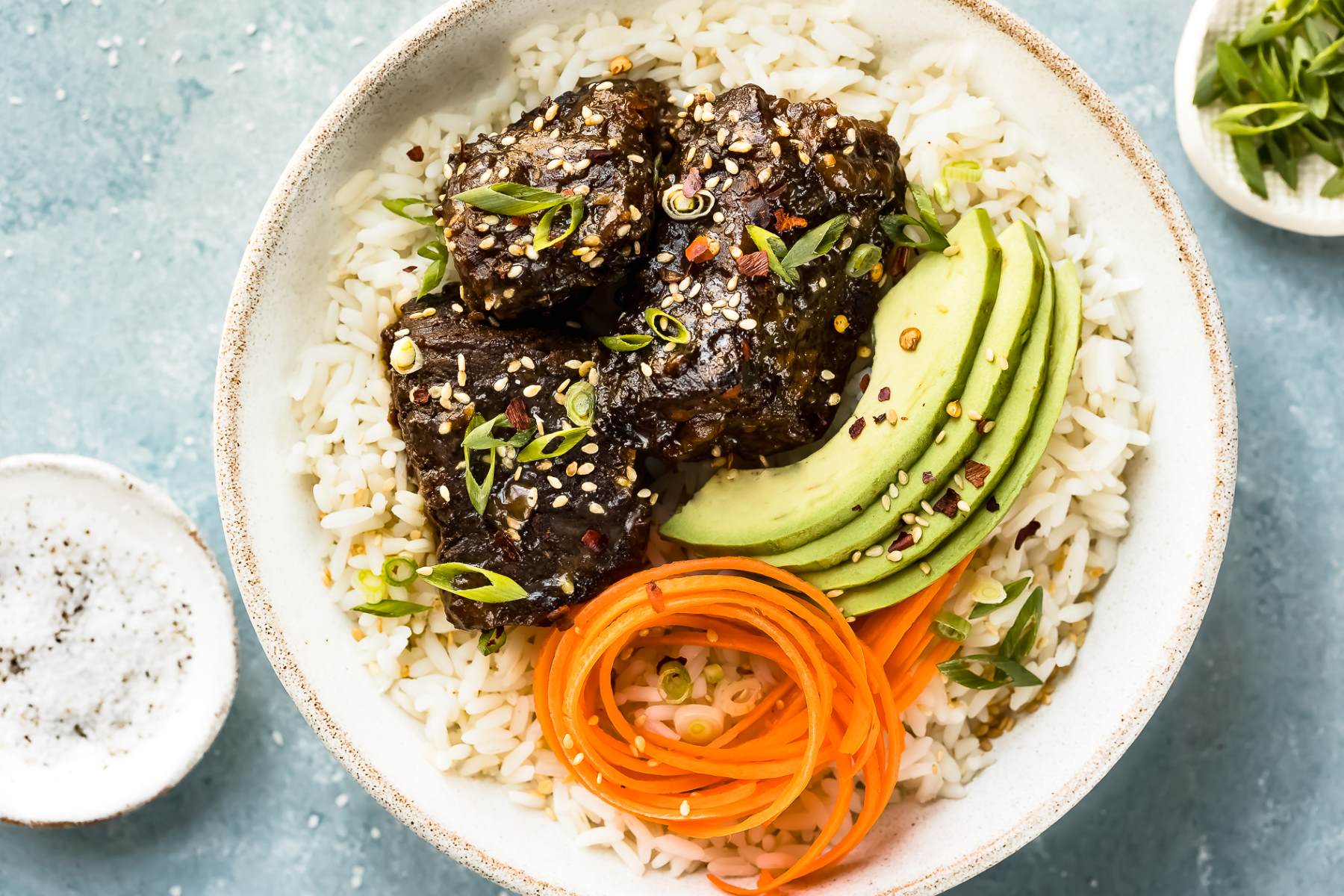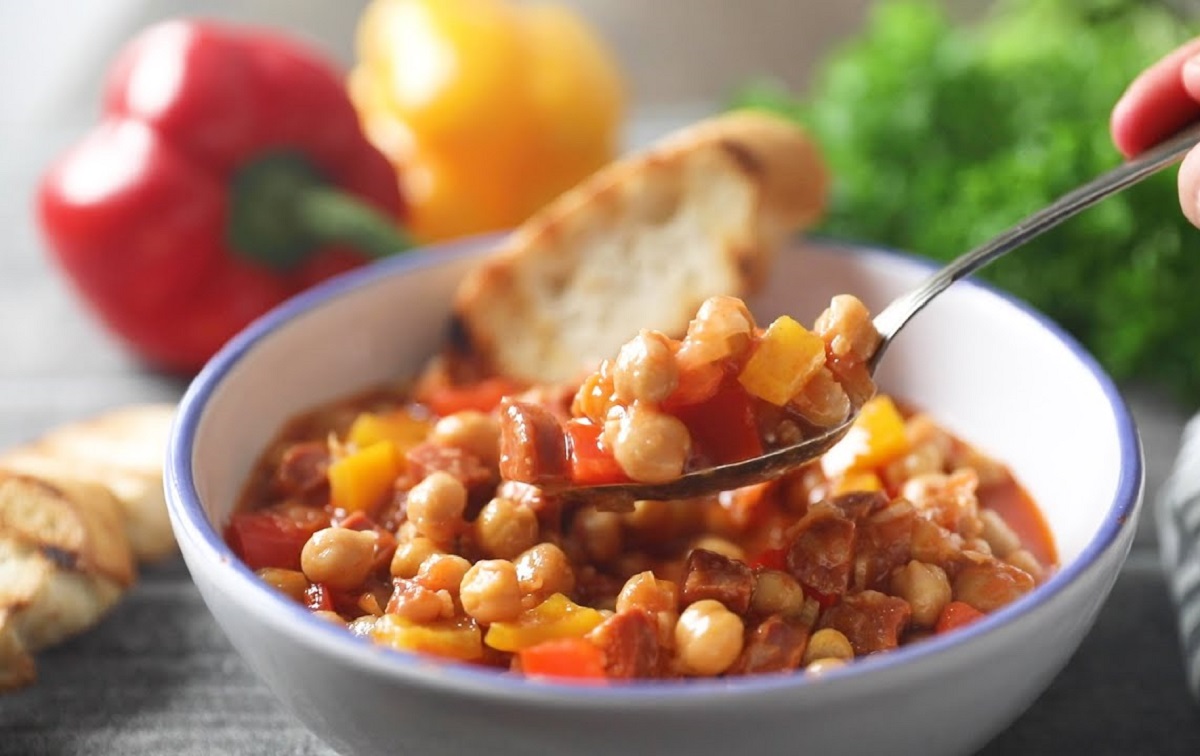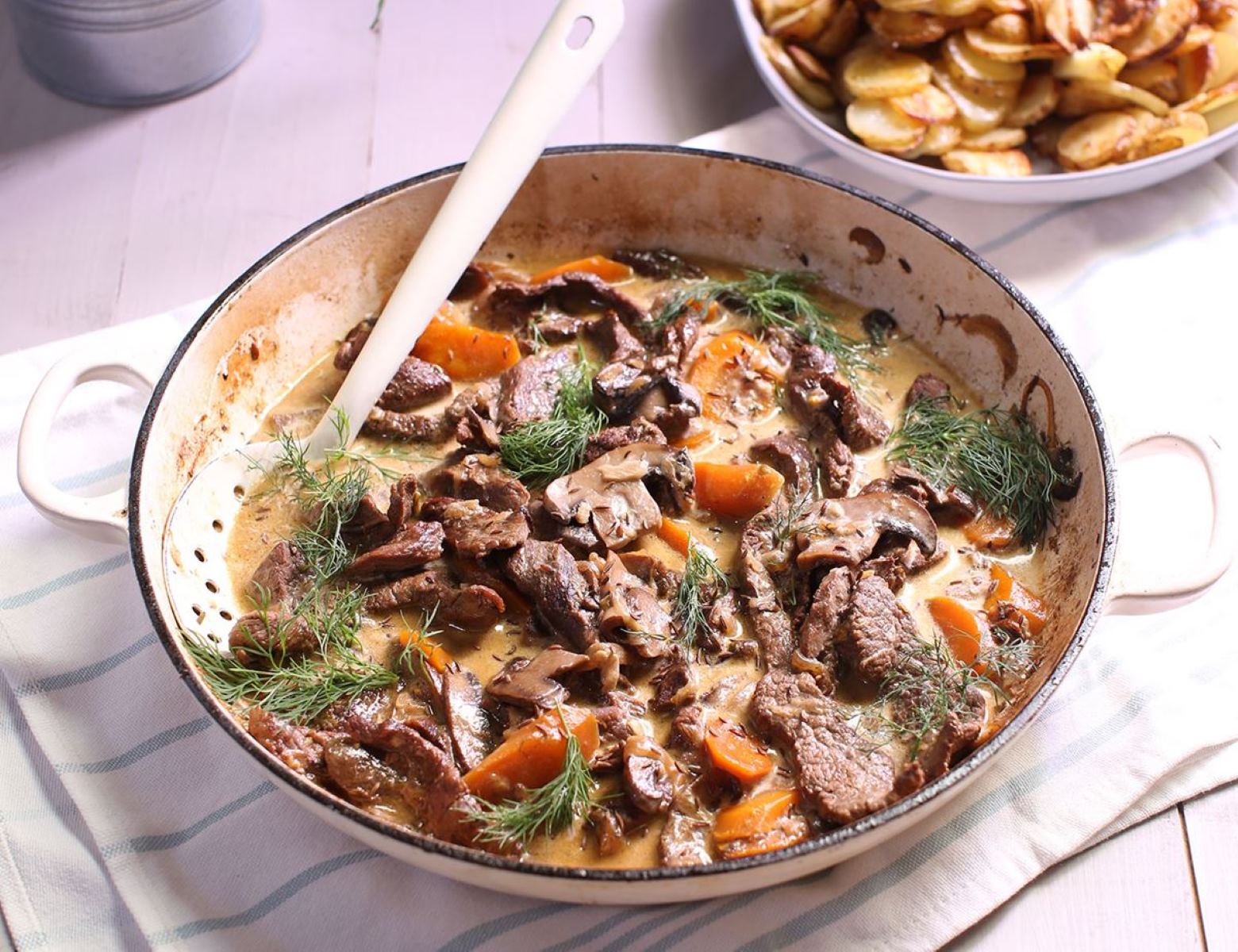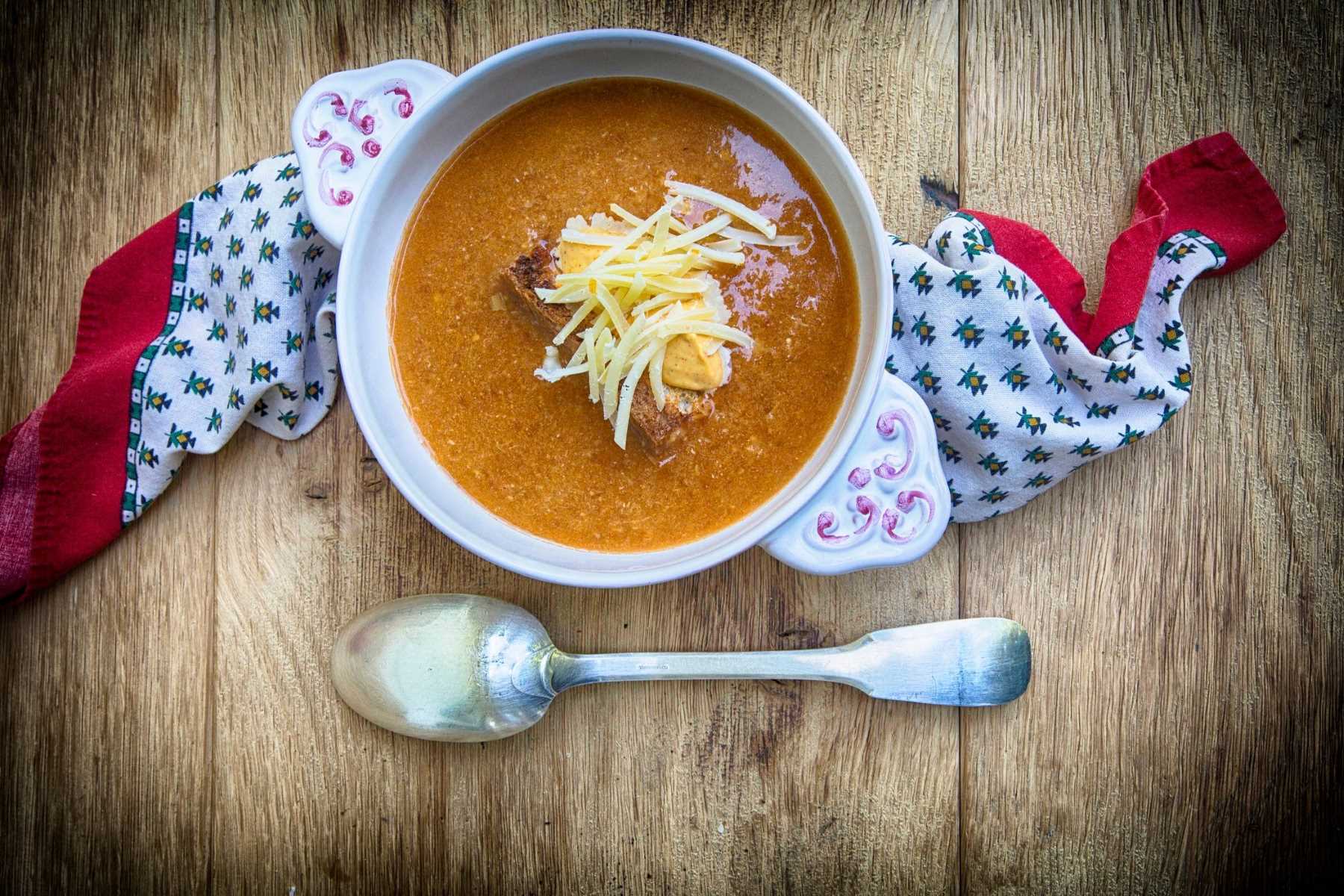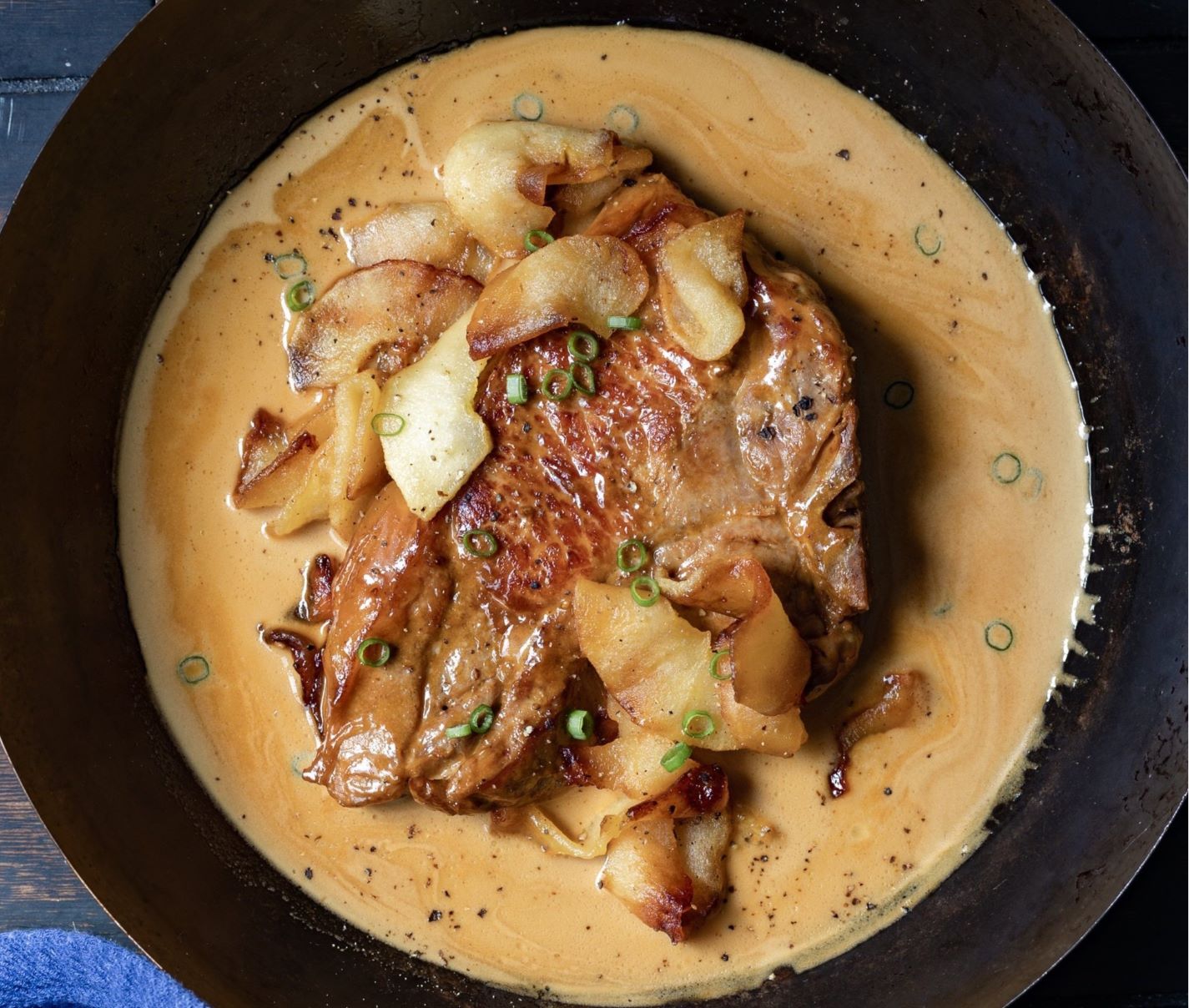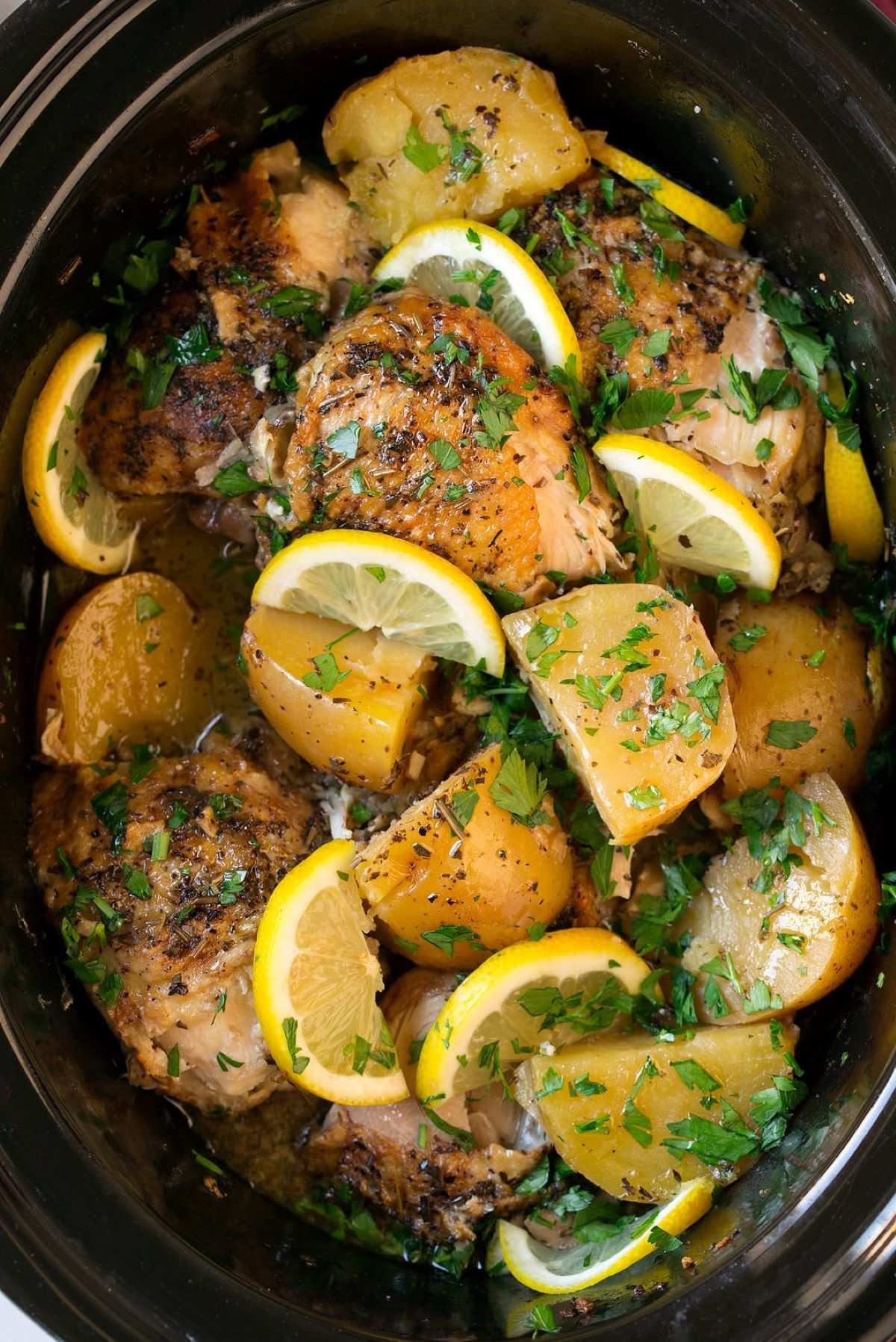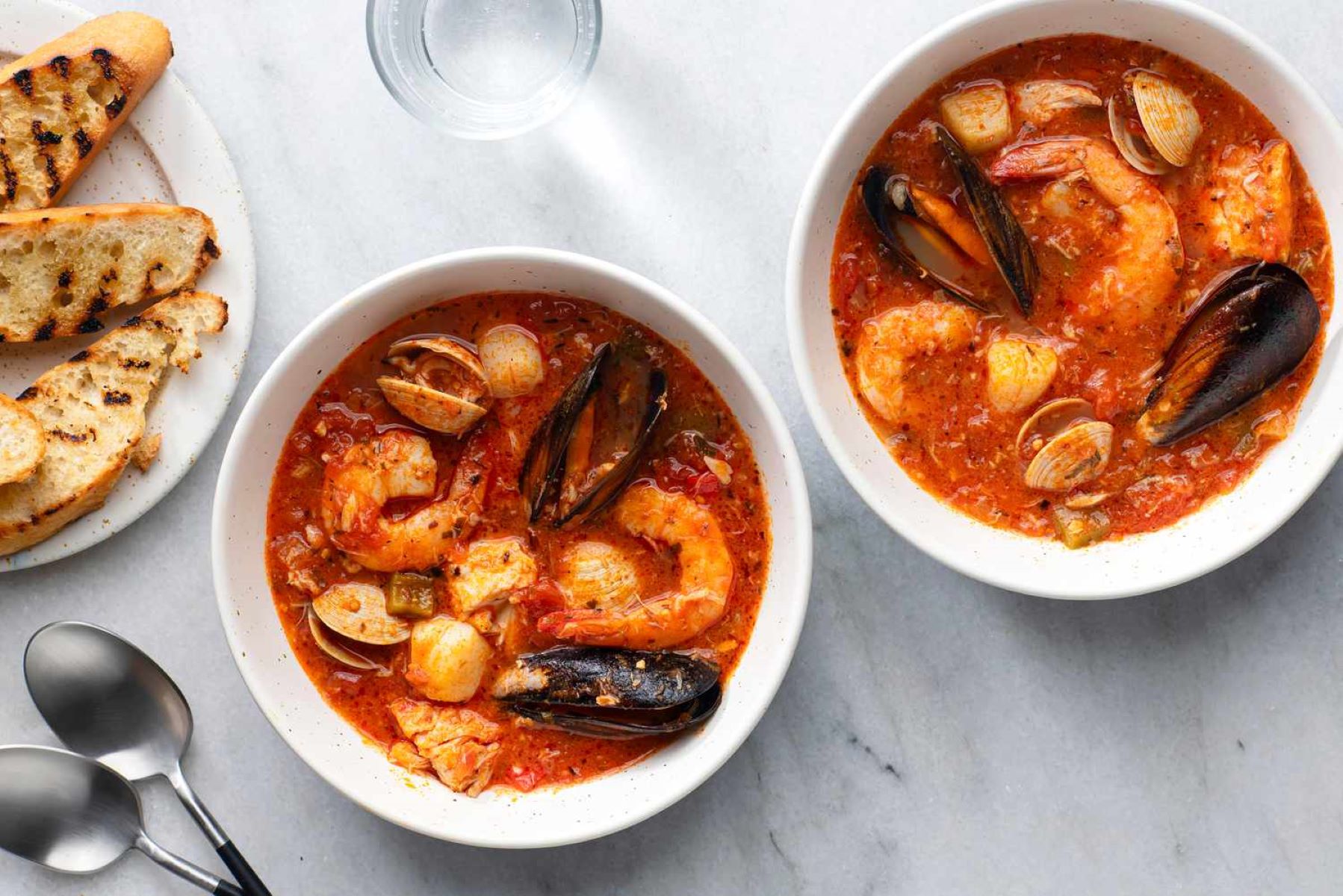

Eating
Fisherman’s Slow Cooker Bouillabaisse
Published: February 15, 2024
Indulge in a hearty bowl of Fisherman's Slow Cooker Bouillabaisse for a comforting and satisfying meal. Perfect for seafood lovers and easy to make at home. Enjoy eating!
(Many of the links in this article redirect to a specific reviewed product. Your purchase of these products through affiliate links helps to generate commission for Simplelivingeating.com, at no extra cost. Learn more)
Table of Contents
Introduction
Bouillabaisse, a traditional Provençal fisherman's stew, is a culinary masterpiece that embodies the essence of coastal living. This hearty and aromatic dish originated in the port city of Marseille, France, where resourceful fishermen created it as a way to utilize the bony rockfish and other seafood that were unsuitable for sale. Over time, bouillabaisse has evolved into a celebrated symbol of Mediterranean cuisine, renowned for its rich flavors and cultural significance.
The name "bouillabaisse" is derived from the Provençal Occitan word "bolhabaissa," which means to boil and simmer. This name perfectly encapsulates the cooking process of this delectable dish, which involves simmering a variety of fish, shellfish, and aromatic vegetables in a flavorful broth. The result is a harmonious blend of savory flavors that evoke the essence of the sea.
What sets bouillabaisse apart is the careful selection of seafood and the meticulous preparation of the broth. Traditionally, the stew features an assortment of fish such as red rascasse, sea robin, and European conger, along with shellfish like mussels, clams, and shrimp. The broth is infused with a medley of herbs and spices, including saffron, fennel, and garlic, which impart a depth of flavor that is both robust and nuanced.
Preparing bouillabaisse is not merely a culinary endeavor; it is a cultural experience that pays homage to the coastal traditions of Provence. The slow and deliberate process of simmering the ingredients allows the flavors to meld together, resulting in a dish that is as comforting as it is captivating. Whether enjoyed in a quaint seaside bistro or prepared at home, bouillabaisse invites diners to savor the bounty of the sea in a way that is both rustic and refined.
In the following sections, we will explore the essential ingredients and step-by-step instructions for creating a sumptuous fisherman's slow cooker bouillabaisse. Additionally, we will provide valuable tips for achieving the perfect balance of flavors and textures, as well as suggestions for serving and storing this beloved dish. Let's embark on a culinary journey to discover the art of crafting bouillabaisse, a timeless treasure of coastal cuisine.
Read more: German Stew Pichelsteiner For Slow Cooker
Ingredients
To create a delectable fisherman's slow cooker bouillabaisse, you will need a carefully curated selection of fresh seafood, aromatic vegetables, and a harmonious blend of herbs and spices. The following ingredients are essential for capturing the authentic flavors of this iconic Provençal dish:
Seafood:
- 1 pound (450g) firm white fish fillets, such as cod, halibut, or sea bass
- 1 pound (450g) mixed shellfish, including mussels, clams, and shrimp
- 1 pound (450g) assorted fish heads, bones, and trimmings (available from the fishmonger)
Aromatic Vegetables:
- 1 large onion, finely chopped
- 2 leeks, white and light green parts only, sliced
- 3 garlic cloves, minced
- 1 fennel bulb, thinly sliced
- 2 large ripe tomatoes, diced
- 1 celery stalk, diced
Bouillabaisse Broth:
- 4 cups (950ml) fish stock or clam juice
- 1 cup (240ml) dry white wine
- 1/4 teaspoon saffron threads
- 2 bay leaves
- 1 teaspoon dried thyme
- 1 teaspoon dried oregano
- Salt and freshly ground black pepper to taste
Read more: Algerian Chicken Stew For Slow Cooker
Aromatics and Garnishes:
- 1/4 cup (60ml) extra-virgin olive oil
- 1 tablespoon orange zest
- 2 tablespoons fresh parsley, chopped
- Crusty bread or baguette, for serving
These thoughtfully selected ingredients form the foundation of an authentic fisherman's slow cooker bouillabaisse, ensuring a symphony of flavors that pay homage to the coastal traditions of Provence. With these elements in hand, you are poised to embark on a culinary adventure that celebrates the bountiful treasures of the sea.
Instructions
-
Prepare the Seafood: Begin by rinsing the fish fillets and shellfish under cold water, ensuring that they are clean and free of any debris. Pat them dry with paper towels and set them aside. If you have purchased whole fish, carefully fillet and debone them, reserving the heads, bones, and trimmings for the broth.
-
Saute the Aromatic Vegetables: In a large skillet or sauté pan, heat a drizzle of olive oil over medium heat. Add the chopped onion, sliced leeks, minced garlic, and thinly sliced fennel bulb. Sauté the vegetables until they are soft and fragrant, allowing their natural sweetness to develop. Stir in the diced tomatoes and celery, cooking until the mixture is slightly caramelized.
-
Prepare the Bouillabaisse Broth: Transfer the sautéed vegetables to the slow cooker. Place the assorted fish heads, bones, and trimmings on top of the vegetables. Pour in the fish stock or clam juice, followed by the dry white wine. Add the saffron threads, bay leaves, dried thyme, and dried oregano, infusing the broth with a symphony of aromatic flavors. Season the broth with salt and freshly ground black pepper to taste.
-
Simmer in the Slow Cooker: Set the slow cooker to low heat and cover it with the lid. Allow the bouillabaisse broth to simmer and develop its rich flavors for 4-6 hours, allowing the essence of the seafood and aromatics to meld together into a harmonious union. The slow cooking process will extract the full depth of flavors from the ingredients, resulting in a luscious and aromatic broth.
-
Add the Seafood: Once the bouillabaisse broth has reached a fragrant and flavorful base, gently add the firm white fish fillets and mixed shellfish to the slow cooker. Ensure that the seafood is submerged in the broth, allowing it to gently poach and absorb the savory essence of the stew. Cover the slow cooker and continue to cook the bouillabaisse for an additional 20-30 minutes, or until the seafood is tender and fully cooked.
-
Finish with Aromatics and Garnishes: Just before serving, drizzle the extra-virgin olive oil over the bouillabaisse, infusing it with a touch of fruity richness. Sprinkle the orange zest and freshly chopped parsley over the stew, adding a burst of vibrant flavors and aromas. Serve the fisherman's slow cooker bouillabaisse hot, accompanied by crusty bread or a baguette to soak up the luscious broth.
By following these meticulous instructions, you will embark on a culinary journey that captures the essence of coastal living, culminating in a fisherman's slow cooker bouillabaisse that is as rich in tradition as it is in flavor.
Tips for Making the Perfect Bouillabaisse
Creating the perfect bouillabaisse is an art that requires attention to detail and a deep appreciation for the flavors of the sea. Here are some invaluable tips to ensure that your fisherman's slow cooker bouillabaisse achieves the pinnacle of culinary excellence:
-
Selecting Fresh Seafood: The key to an exceptional bouillabaisse lies in the quality of the seafood. Opt for the freshest fish and shellfish available, as their pristine flavors will elevate the stew to new heights. When purchasing seafood, look for clear, bright eyes on whole fish, and ensure that shellfish are tightly closed or close tightly when tapped.
-
Building Layers of Flavor: Sauteing the aromatic vegetables until they are soft and caramelized is crucial for developing a robust base of flavors. This initial step sets the stage for a deeply aromatic broth that forms the heart of the bouillabaisse.
-
Infusing Saffron: Saffron, the prized spice derived from the crocus flower, is a quintessential component of bouillabaisse. Infuse the broth with saffron threads to impart a subtle yet distinctive golden hue and a delicate floral aroma that enhances the overall sensory experience.
-
Slow and Gentle Cooking: The slow cooker method allows the flavors of the seafood and aromatics to meld together gradually, resulting in a rich and complex broth. The gentle simmering process coaxes out the essence of the ingredients, yielding a bouillabaisse that is deeply infused with the essence of the sea.
-
Timing the Addition of Seafood: Adding the seafood to the bouillabaisse at the right moment is crucial for achieving perfectly cooked, tender morsels. Introduce the fish fillets and shellfish into the slow cooker just as the broth reaches its peak of flavor, allowing the seafood to gently poach and absorb the essence of the stew without overcooking.
-
Embracing Aromatics and Garnishes: The finishing touches of extra-virgin olive oil, orange zest, and freshly chopped parsley impart a burst of vibrant flavors and aromas to the bouillabaisse. These final accents elevate the dish, adding layers of complexity and a touch of brightness to the rich, savory stew.
By adhering to these expert tips, you will embark on a culinary journey that honors the time-honored traditions of bouillabaisse while achieving a symphony of flavors that captivate the senses. The perfect bouillabaisse is a testament to the artistry of coastal cuisine, inviting diners to savor the essence of the sea in every spoonful.
Serving and Storing Suggestions
Once the fisherman's slow cooker bouillabaisse has been lovingly prepared and infused with the essence of the sea, it is time to savor this culinary masterpiece in a manner befitting its rich heritage. Here are some serving and storing suggestions to ensure that every delightful spoonful of bouillabaisse is a celebration of coastal flavors and traditions.
Read more: Mediterranean Chicken For Slow Cooker
Serving Suggestions
When presenting the fisherman's slow cooker bouillabaisse, consider serving it in shallow bowls to showcase the vibrant colors and enticing aromas of the stew. The generous ladleful of bouillabaisse, brimming with tender seafood and aromatic broth, is a sight to behold and a testament to the artistry of coastal cuisine. Accompany the bouillabaisse with slices of crusty bread or a freshly baked baguette, allowing diners to savor every last drop of the luscious broth.
For a touch of rustic elegance, consider garnishing each serving with a sprig of fresh thyme or a drizzle of high-quality extra-virgin olive oil. These subtle accents add a touch of refinement to the presentation while enhancing the overall sensory experience. As bouillabaisse is a dish meant to be savored slowly, encourage diners to take their time and immerse themselves in the rich flavors and textures that unfold with each spoonful.
Storing Suggestions
If there happen to be any leftovers of the fisherman's slow cooker bouillabaisse, it is essential to store them properly to maintain the integrity of the flavors. Transfer the remaining bouillabaisse to airtight containers and refrigerate them promptly. The bouillabaisse can be stored in the refrigerator for up to 2-3 days, allowing the flavors to further meld and develop over time.
When reheating the bouillabaisse, do so gently over low heat to preserve the delicate texture of the seafood and prevent the broth from boiling vigorously. This ensures that the flavors remain nuanced and harmonious, allowing each ingredient to shine with every reheated serving. As an alternative, the bouillabaisse can be frozen for up to 2-3 months, providing a taste of coastal indulgence to be enjoyed at a later time.
By embracing these serving and storing suggestions, you honor the legacy of bouillabaisse as a dish that embodies the spirit of coastal living. Whether shared with loved ones or enjoyed as a personal indulgence, the fisherman's slow cooker bouillabaisse offers a symphony of flavors that captivate the senses and evoke the timeless allure of the sea.
Conclusion
In conclusion, the art of crafting a fisherman's slow cooker bouillabaisse is a testament to the rich tapestry of coastal cuisine, steeped in tradition and brimming with the essence of the sea. This iconic Provençal dish, with its origins rooted in the resourcefulness of fishermen and the vibrant flavors of the Mediterranean, embodies a culinary heritage that transcends generations.
The meticulous selection of fresh seafood, the aromatic dance of vegetables and herbs, and the slow, deliberate simmering process culminate in a dish that is as comforting as it is captivating. Bouillabaisse is not merely a stew; it is a celebration of the bountiful treasures of the sea, a symphony of flavors that pays homage to the coastal traditions of Provence.
As the fragrant aromas of saffron, fennel, and garlic infuse the broth, and the tender morsels of fish and shellfish gently poach to perfection, bouillabaisse beckons diners to savor each spoonful as a journey through the coastal landscapes of the Mediterranean. Whether enjoyed in a quaint seaside bistro or prepared at home, bouillabaisse invites us to embrace the simple pleasures of life and indulge in the sensory delights that only the sea can offer.
The serving and storing suggestions ensure that every delightful spoonful of bouillabaisse is a celebration of coastal flavors and traditions. Whether presented in shallow bowls with a drizzle of olive oil and a sprinkle of fresh herbs or carefully stored for future indulgence, bouillabaisse remains a timeless treasure that captivates the senses and evokes the allure of the sea.
In essence, the fisherman's slow cooker bouillabaisse is more than a dish; it is a cultural experience that invites us to slow down, savor the moment, and revel in the simple pleasures of life. It is a reminder that the most profound flavors often emerge from the simplest of ingredients, and that the traditions of the past continue to enrich our lives in the most delightful ways. With each spoonful of bouillabaisse, we are transported to the sun-drenched shores of Provence, where the sea meets the land, and the essence of coastal living is captured in a single, unforgettable dish.

